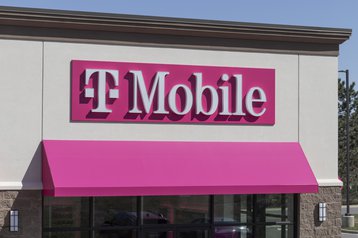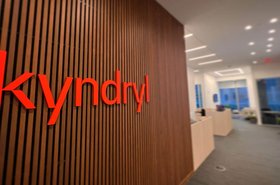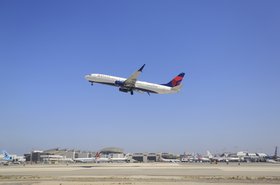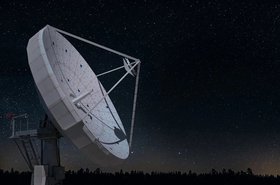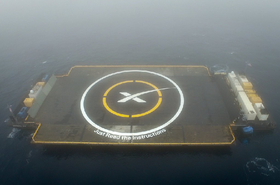T-Mobile has addressed a number of recent filings from rivals including AT&T which had responded to SpaceX's application to the Federal Communications Commission (FCC) for Supplemental Coverage from Space (SCS) services.
The operator responded to dismiss the concerns highlighted in recent filings by AT&T, Dish, RWA, and Omnispace regarding the application.
T-Mobile and SpaceX initially requested authorization to provide coverage from space to supplement the mobile operator’s terrestrial network using SpaceX satellites.
T-Mobile and SpaceX are planning to use T-Mobile’s Broadband PCS G Block spectrum, building on plans outlined by both companies in August of last year to provide mobile connectivity from space as part of plans to leave no area without coverage in the US, via Starlink's satellites.
However, the filing made by SpaceX last month was met with criticism from rival providers, with AT&T notably vocal against it.
In the filing, which was dated May 18 and the same day SpaceX won its case against Dish, AT&T cited how important it is that supplemental coverage from space (SCS) services are not allowed to interfere with existing terrestrial wireless services.
AT&T has an issue with the plans as it's also a license holder of frequencies adjacent to the specific block of spectrum in question, and has concerns that satellite-based phone operators could disrupt the delivery of terrestrial wireless services.
“In evaluating potential SCS deployments, the Commission must prioritize protecting these foundational terrestrial networks," AT&T said in a filing to the FCC last month.
"The FCC’s rules do not permit SpaceX’s proposed use of T-Mobile’s terrestrial spectrum, and Applicants fail to even request — much less justify — rule waivers that would be necessary to authorize their proposed SCS authorizations."
AT&T also claimed that SpaceX's "technical showings are woefully insufficient regarding the risk of harmful interference posed by their planned SCS deployments".
"SpaceX and T-Mobile’s applications fall far short of meeting the threshold for waiver and cannot be granted in their current state. To date, it does not appear that SpaceX and T-Mobile have begun testing any SCS deployments," added AT&T.
Disingenuous and misplaced comments
This has since prompted T-Mobile to hit back at these claims, labeling them as "misplaced".
"AT&T’s insistence that T-Mobile and SpaceX be required to demonstrate that there will be no harm to T-Mobile’s network from SpaceX’s operations is not only disingenuous but it is also misplaced. AT&T speculates on three scenarios that T-Mobile is “likely to face” based on SpaceX’s use of the T-Mobile PCS G Block.
"But AT&T ignores that T-Mobile remains bound by the Commission’s rules and that, so long as it conforms to those rules, how it permits SpaceX to use its spectrum is a commercial matter only. Moreover, AT&T ignores that the Commission routinely permits parties to exceed technical limits in its rules based on commercial agreements.
"As the Commission itself observes in the SCS NPRM, it "typically requires co-channel terrestrial licensees in adjacent markets to comply with a field strength limit at the common boundary of their geographically licensed markets, while permitting such licensees to negotiate a mutually agreeable alternative limit.” AT&T provides no explanation of why T-Mobile and SpaceX could not do that here."
It wasn't just AT&T being addressed by T-Mobile, as other companies were also mentioned.
In response to the comments, T-Mobile also acknowledged opposition from the National Radio Astronomy Observatory (NRAO), which along with Dish Network, stated that it would be premature for the Commission to consider the SpaceX and T-Mobile requests at this time.
T-Mobile noted that it agrees with the NRAO that operations covered by the Commission’s radio quiet zone rules must be protected, including the radio-quiet zones highlighted by the NRAO.
The operator said its operations currently respect those zones in line with the FCC rules, while highlighting that SpaceX and the NRAO reached a coordination agreement to address the protection of radio-quiet zones from SpaceX’s first- and second-generation satellite systems, adding that this is evidence that there is no reason to believe the radio-quiet zones highlighted by the NRAO will not be protected from the proposed SCS services.
Another firm, global communications provider, Omnispace LLC, was also on T-Mobile's radar, as Omnispace has previously outlined concerns over the use of 1990-1995 MHz band for downlink mobile satellite services, alleging it will cause harmful interference to other satellite operators.
However, T-Mobile argues that this concern is contrary to decisions that the US has made regarding the use of the 1990-1995 MHz band, noting that the band is already used for downlink operations and the companion band, 1,910-1,915 MHz, is used for uplink operations in the US.
T-Mobile claims that Omnispace's criticisms ignore that there are tens of millions of handsets already in operation that use that directionality.
SpaceX has been separately having an ongoing spectrum dispute with Dish Network, on which the FCC eventually sided with SpaceX.

